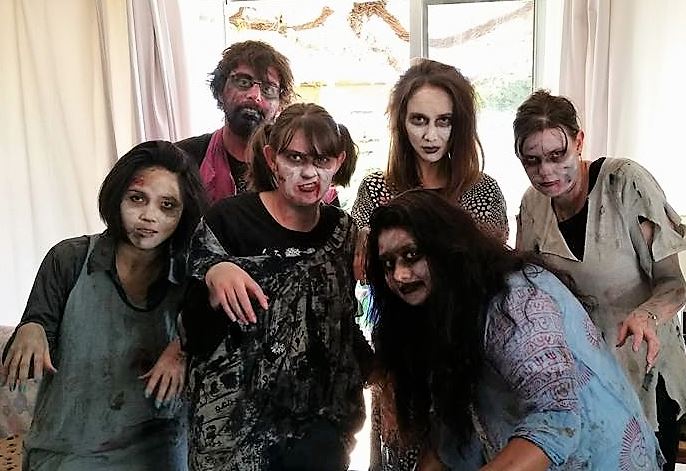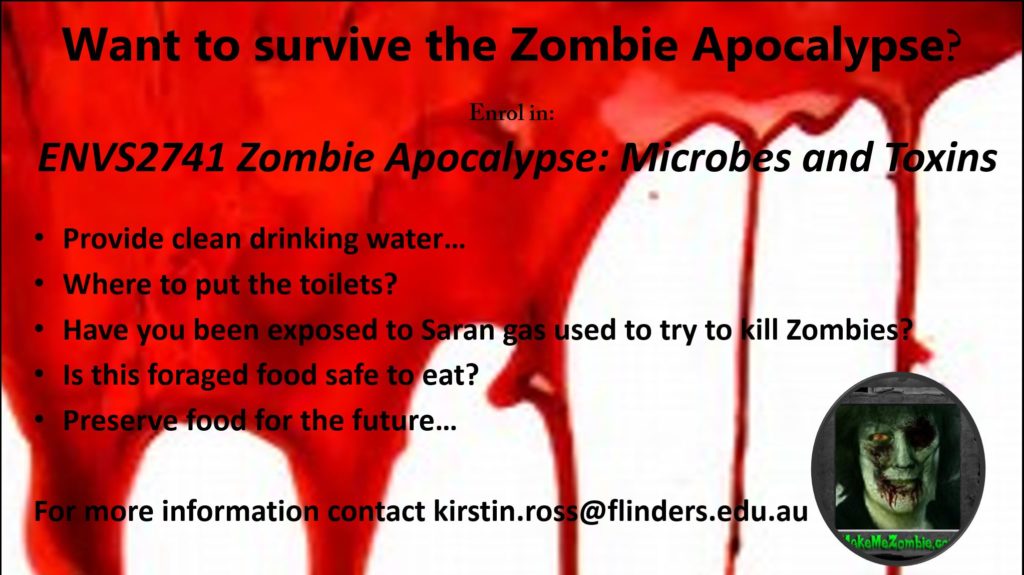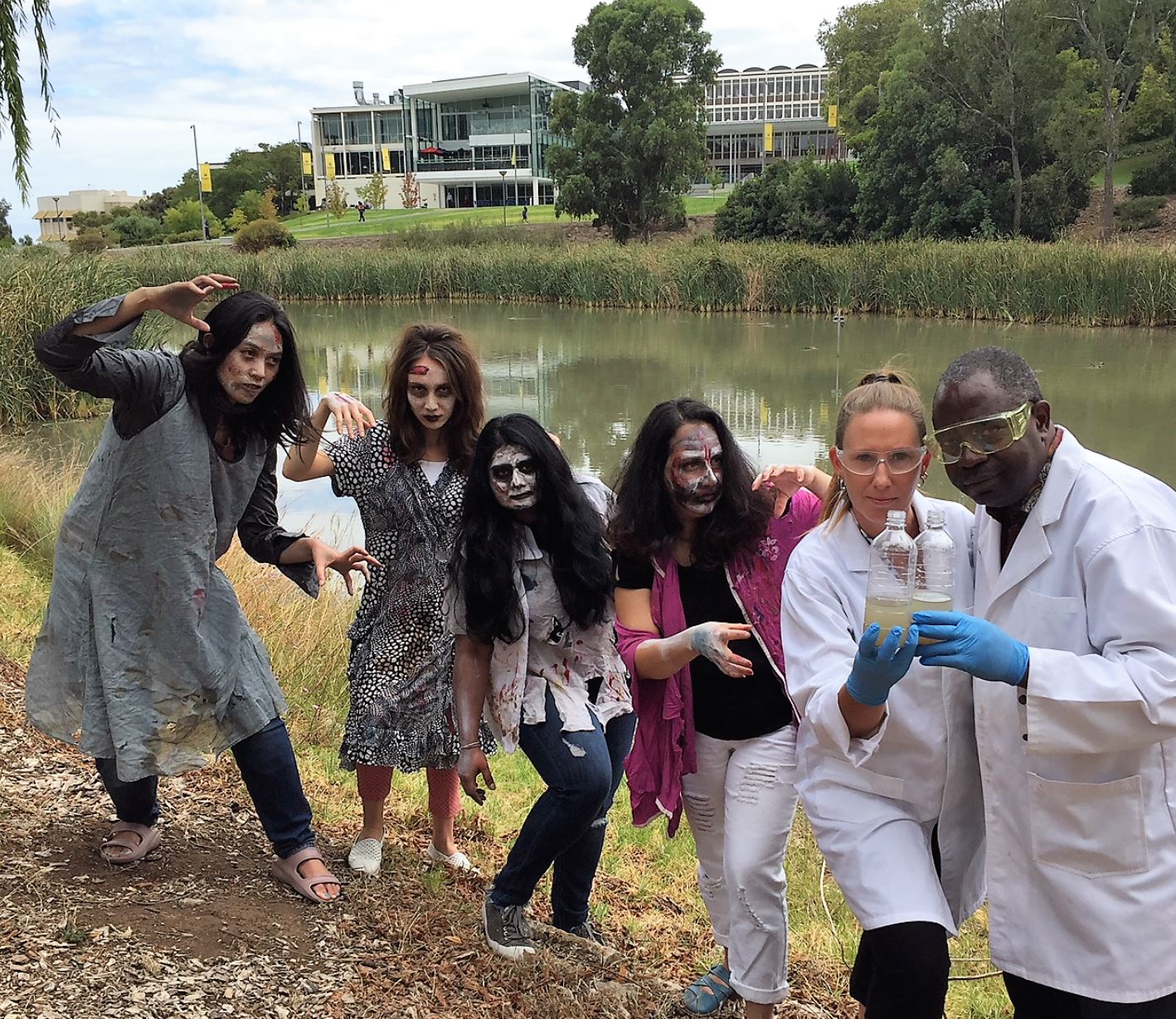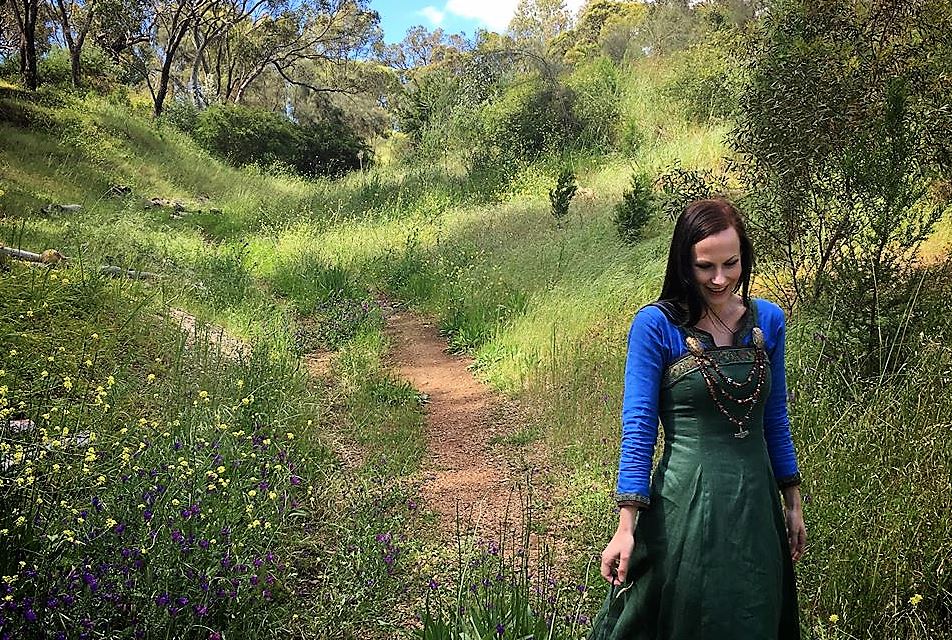
Beware – the ‘Zombie Apocalypse’ will return to Flinders Bedford Park next year.
Using theoretically-grounded techniques, the new course put science students to the survival test of creating a safe place for people to shelter from an apocalypse.
The successful pilot of the new course, run this year by Professor Howard Fallowfield, Dr Kirstin Ross and Dr Harriet Whiley in the College of Science and Engineering, resulted in one of five 2017 Vice-Chancellor Awards for Excellence in Teaching.
The environmental health topic, offered for the first time to second-year undergraduate students, gave a practical and engaging insight into career pathways in microbiology, toxicology and environmental science.
“The title gave us a culturally relevant ‘hook’ to make more students recognise that science is fun, and that there’s career opportunities and shortages of professionals in the field of public health,” says environmental health lecturer Dr Ross.

Zombie Apocalypse: Microbes and Toxins challenged students to find ways to forage for food safe to eat and clean drinking water from the University campus lake – and even test themselves for poisonous gas exposure.
“There is a shortage of environmental health workers, so one goal was to showcase potential career pathways to the students,” Dr Ross says.

The Selection Committee acknowledges all submissions. The maximum number of awards were conferred due to the strong field of applicants.
Awarded at the end of the annual Teaching and Learning Week at Flinders, other winners of this year’s VC Award for Excellence in Teaching were the:
Global Workplace Teaching Team (Professor Susanne Schech, Dr Maryanne Kelton, Verity Kingsmill and David Willis from the Colleges of Humanities, Arts and Social Sciences / Business, Government and Law)
For pioneering work on harnessing educational information and communication technologies for an international collaborative work-integrated learning initiative in International Studies to develop and practice global workplace competencies.
Up The Hill Project (Dr Fiona Rillotta, Lorraine Lindsay and Jenny Widdop from the College of Nursing and Health Sciences)
An innovative, structured and sustained Work-Integrated Learning program in Disability and Community Inclusion that responds to student, community and industry needs.
International nurse language teaching (Dr Amanda Müller from the College of Nursing and Health Sciences)
For commitment to advancing the linguistic skills and outcomes of international nursing students through the development of evidence-based innovative language teaching and resources, assessment improvement, and integration of language and literacy support into the curriculum.
Many sides to every story (Dr Lisa Bennett and Dr Erin Sebo from the College of Humanities, Arts and Social Sciences)
For inspiring students to interrogate cultural contact through research-led teaching of Viking and Anglo-Saxon language, literature and culture.

The topic on Old English and Old Norse at Flinders offers students the opportunity to explore the language and literature of these specialisations.
Spurred by Game of Thrones and Vikings and the popular interest in medieval literature and themes, Dr Bennett dressed in a Viking outfit for the final lecture of the topic. Viking-style food was also served.
Dr Bennett and Dr Sebo have been busy publishing this year, with Dr Bennett collaborating on a non-fiction monograph entitled Vikings in Popular Culture and Dr Sebo co-authoring a translation of Beowulf .

